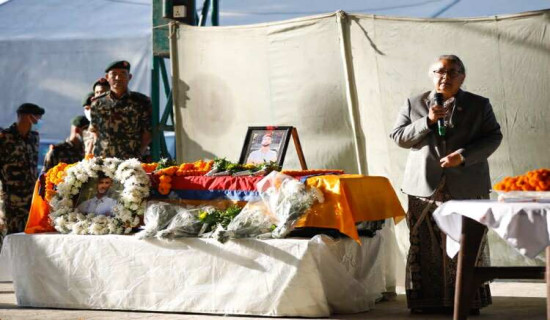- Monday, 20 October 2025
Takeaways from the Debacle of Sheikh Hasina
 Satya Raj Joshi
Satya Raj Joshi
In the world of politics, there are valuable
lessons to be learned from the successes and failures of leaders. One such
example is the political downfall of Sheik Hasina, which offers important insights for
aspiring politicians and the public. Bangladesh has experienced a dramatic
situation over the past few weeks. Violent protests erupted after a High Court
decision reinstated (although it later on slashed) generous public job quotas
for the descendants of martyrs and veterans who fought in the independence war
against Pakistan. Disenfranchised students, frustrated with a corrupt and
mismanaged system, protested to assert their rights to these jobs. What began
as peaceful demonstrations quickly escalated into a violent and bloody mayhem,
with the state responding with brutal force. Eventually, the government fell.
This scenario has raised moral and ethical questions.
One of the most prominent takeaway from
Hasina’s political challenges is the danger inherent in the centralization of
power. Over her tenure, Hasina centralized power to an unprecedented degree,
controlling key aspects of governments, the judiciary, and even the media.
While this may have allowed for swift decision-making and implementation of
policies, it also led to a significant erosion of democratic
institutions.
Power without accountability leads to moral and political decay. Leaders must recognize that democratic governance thrives on checks and balances. Overly centralizing power not only stirs dissent, but also breeds a culture of fear and silence, which can ultimately turn against leaders. Empowering institutions and dispersing power are key to fostering trust in moral leadership.
Significant economic progress has marked
Hasina’s tenure; however, economic growth alone cannot sustain public trust.
Allegations of corruption, human rights abuses, and electoral manipulation have
tainted her administration’s legacy, leading to widespread public discontent.
Trust, once lost, is difficult to regain, and no amount of economic success can
compensate for a perceived betrayal of democratic principles.
One of the critical criticisms Hasina has
faced is the perceived undermining of democratic processes, particularly in
relation to elections. Allegations of voter suppression, media censorship, and
manipulation of electoral outcomes have cast a long shadow over her leadership.
Democracy is not just about holding elections; it is about ensuring that those
elections are free, fair, and reflective of the people’s will.
The integrity of democratic processes is
non-negotiable. Leaders who manipulate democratic systems for personal or
political gain undermine the moral fabric of their societies. Ethical leaders
are committed to upholding the law and the spirit of democracy, ensuring that
all voices are heard and power is genuinely derived from the consent of the
governed.
Another significant aspect of Hasina’s
debacle is the international and domestic criticism of her government’s human
rights record. Reports of crackdowns on dissent, suppression of opposition
voices, and abuses by security forces have marred her administration’s
reputation. In the globalized world, human rights are a critical measure of a
government’s moral standing.
Hasina’s political journey has also
highlighted the risks associated with inadequate succession planning. Her long
tenure, while providing stability, has also created uncertainty about the
future leadership of her party and the country. The lack of clear succession
can lead to internal power struggles and weaken the party’s ability to govern
effectively.
It is impossible to easily silence or
suppress the power of the people. Any attempt to stifle their voice is
ultimately futile, as history has shown time and again. Leaders must recognize
that their legitimacy and survival depend on their ability to govern
effectively and justly.
In Nepal, a musical chair of top leaders from
three major parties has been ongoing for years. This constant rotation of
leaders has given rises to questions about their true intentions and their
commitment to bringing about meaningful changes in the lives of the people. Are
they genuinely striving to fulfill the aspirations of the people, or are they
simply prolonging their stay in power to serve their own vested interests and
those of their loyalists?
Hasina’s debacle serve as a powerful
illustration of the importance of civil liberty and the fulfillment of people's
aspirations. The people of Bangladesh have shown their unwavering determination
to have their voices heard and their rights respected. This serves as a
reminder to leaders everywhere that the power of the people is invincible and
must be respected.
Leaders who fail to recognize and respect the
power of the people will inevitably face the consequences. Popular discontent,
fueled by a sense of injustice and unmet expectations, can become an inexorable
force that leads to the end of their reign. It is crucial for our leaders to
heed this bitter truth and govern in a manner that truly serves the interests of
the people.
The debacle faced by Sheikh Hasina serves as
a profound reminder of the moral responsibilities inherent in leadership. While
political power can bring about significant achievements, it also comes with
the heavy burden of ethical governance. Leaders must strive to balance power
with accountability, economic success with social justice, and national
interests with global ethical standards. In the end, the major takeaways from
Hasin's debacle is that the accurate measure of a leader's success lies not
just in their accomplishments but in the moral legacy they leave behind.
(The author is an educator and the
Editor in-chief of SHANTI Journal.)



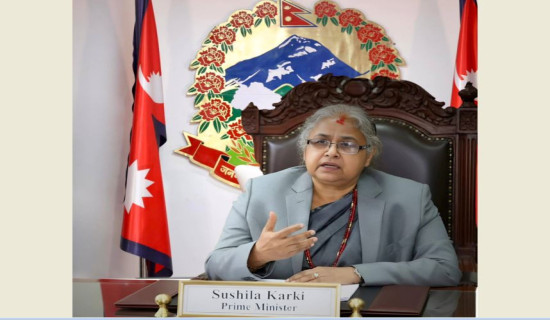

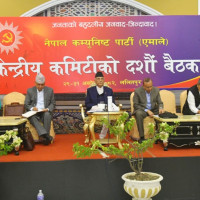


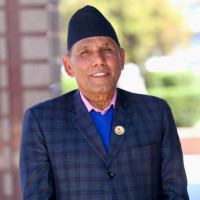

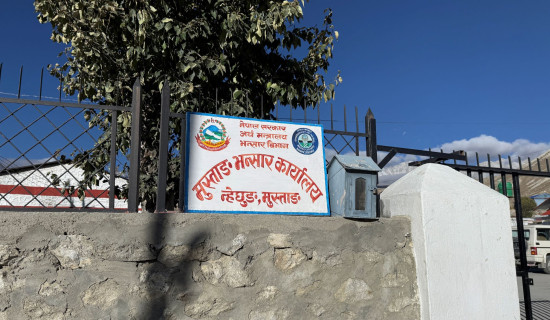


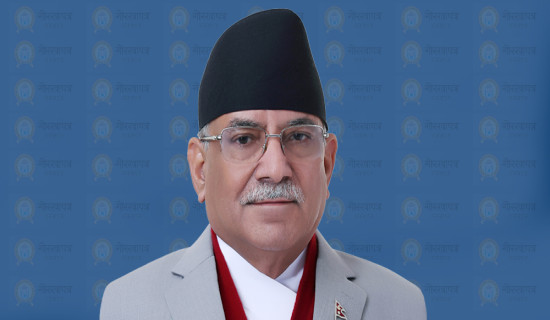

-original-thumb.jpg)
